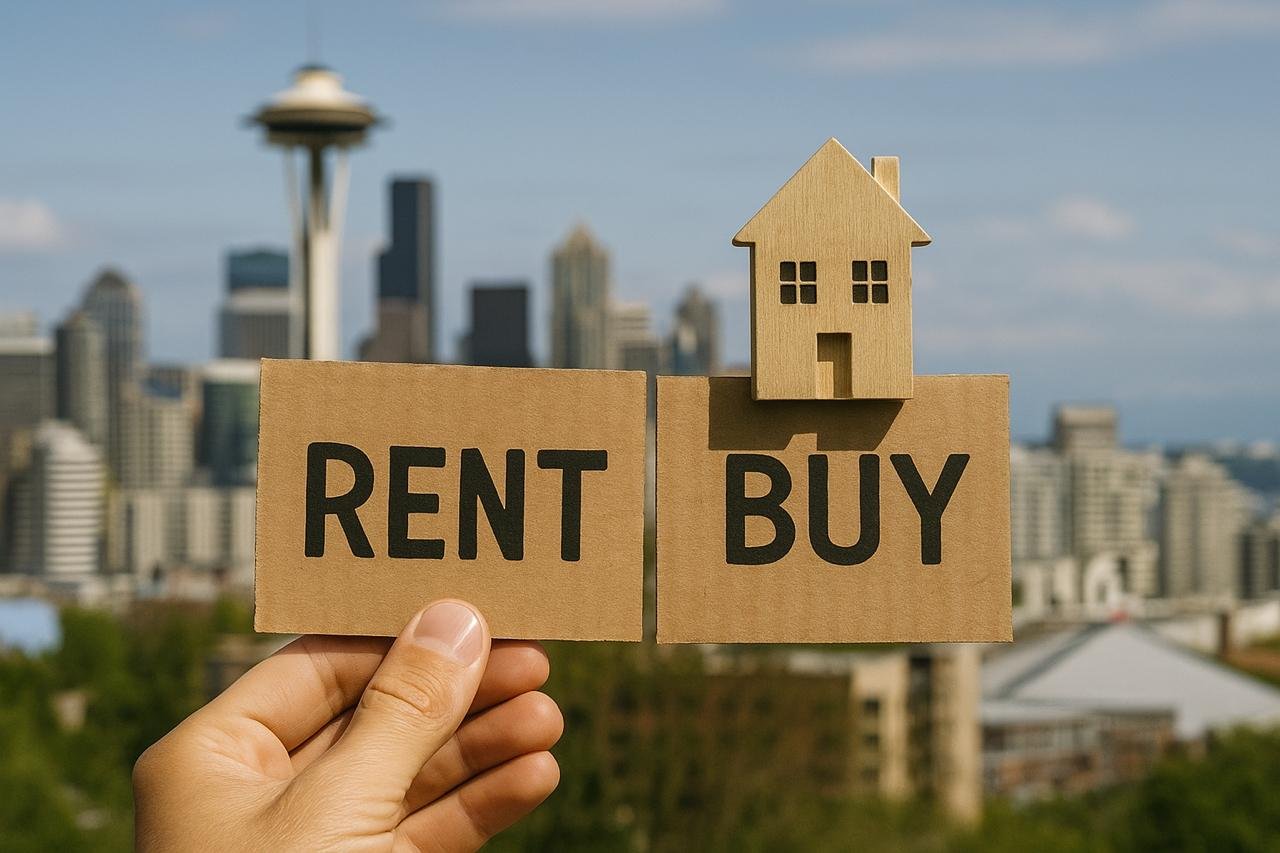Is it cheaper to rent or buy in Seattle?
Seattle's skyline shines with potential, but the city's housing scene has many locals and newcomers wondering a hard question: is it more affordable to buy or rent in Seattle today? As we navigate 2025, the answer is more complicated than ever. Let's parse the numbers, the trends, and the actual-world considerations that determine this choice—so you can make the best decision for your future.
The Numbers: Renting vs. Buying in Seattle
Seattle's real estate market is world-famous for being expensive, and the price disparity between renters and buyers continues to grow stronger by the year. Based on the most current research, the average monthly rental payment for a two- or three-bedroom residence in the greater Seattle area costs approximately $2,191, while the average monthly mortgage on a comparable property costs an incredible $4,930. That's more than $2,700 each month.
Actually, Seattle is among 13 major U.S. cities in which the difference between renting and buying is more than $1,000 per month, so becoming a homeowner after years of renting is a serious money stretch for most. Even with the dream of accumulating equity, the harsh reality is that homebuying in Seattle means a much greater monthly expense—plus a significant down payment and regular upkeep.
Why Is Buying So Expensive Right Now
There are a number of reasons why purchasing costs so much higher than leasing in Seattle in 2025:
Steep Home Prices: The average sale price of a home in Seattle is approximately $850,000–$900,000, and they keep rising.
Sky-High Mortgage Rates: With 30-year fixed mortgages at about 6.5–6.85%, the monthly payment is that much more expensive compared to even a few years ago.
Upfront Expenses: Purchasing comes with a huge down payment (usually 20%), closing costs, and additional cash for moving, decorating, and upfront repairs.
Recurring Costs: Owners pay property taxes, insurance, and all maintenance—expenses renters don't need to concern themselves with.
The Argument for Renting: More Flexibility and Less Expense
Based on current figures, renting is obviously the cheaper choice for most Seattle residents in the short run. Here's why:
Lower Monthly Payments: Rent is lower than half the price of an average mortgage on a similar house.
No Maintenance Hassles: Landlords take care of repairs and maintenance, leaving renters without unexpected costs.
Flexibility: Renting makes it simpler to relocate for a new job, change in life, or if you just want to experience a new area.
Liquidity: Renters keep more cash on hand, instead of tying up savings in a down payment or home equity.
The Case for Buying: Long-Term Investment and Stability
Despite the high costs, buying a home in Seattle still has its advantages—especially if you’re planning to stay for several years:
Building Equity: Every mortgage payment increases your ownership stake, rather than going entirely to a landlord.
Stable Payments: With a fixed-rate mortgage, your monthly payment won't increase like rent might (although property taxes and insurance can go up).
Tax Benefits: Homeowners are usually able to deduct mortgage interest and property taxes, which can lower your taxable income.
Personalization: Homeownership allows you the ability to remodel, decorate, and really make a space your own.
But these advantages carry important risks and burdens. If house prices fall or your situation changes, you might be "house poor" or stuck where you are.
What About the Long Term?
Historically, Seattle rents have increased around 5% annually, and home prices have increased as well. If you purchase and remain in place for a decade or more, you can ultimately "catch up" to the cost of renting—particularly if rents keep going up and your mortgage payment remains constant. But in today's market, the initial and ongoing expense of purchasing means that renting remains the less expensive choice for most residents.
Lifestyle Factors: More Than Dollars and Cents
Your choice isn't merely a matter of dollars and cents. Ask yourself these questions:
How many years do you expect to remain in Seattle? If fewer than five, renting nearly always is the better choice.
Do you have sufficient savings for a down payment and unexpected expenses? If not, renting allows you to accumulate your financial buffer.
Are you prepared for homeownership responsibilities? Maintenance, repairs, and property taxes quickly accumulate.
Do you prefer flexibility or stability at this point? Renting allows you to change direction; owning anchors you.
Everyday Living: Managing Your Space
Whether you lease or purchase, maintaining your home tidy and cozy is the secret to loving Seattle. That's where Seattle Green Maids comes in—providing green cleaning options that enable you to get your life back, regardless of which way you choose to go housing-wise.
For tenants, a quality cleaning service equates to fewer worries and more time to do what you love in the city. For homeowners, it's a means of safeguarding your investment and maintaining your sparkling environment, while still managing to keep up with the demands of upkeep and hectic schedules.
Making Your Decision
There’s no one-size-fits-all answer to the rent vs. buy debate in Seattle. The numbers clearly favor renting for most people in 2025, but your personal goals, financial situation, and future plans matter just as much. Take time to crunch the numbers, weigh the pros and cons, and talk to local experts if you’re unsure.
If you’re still on the fence or want more insights, visit our website for more resources, calculators, and up-to-date guidance on navigating Seattle’s challenging housing market.
In the end, whether you rent or buy, the bottom line is to find a house that suits your life and your budget. And when it comes to maintaining that house in excellent condition, Seattle Green Maids is available to assist you—so that you can keep your priorities intact.
